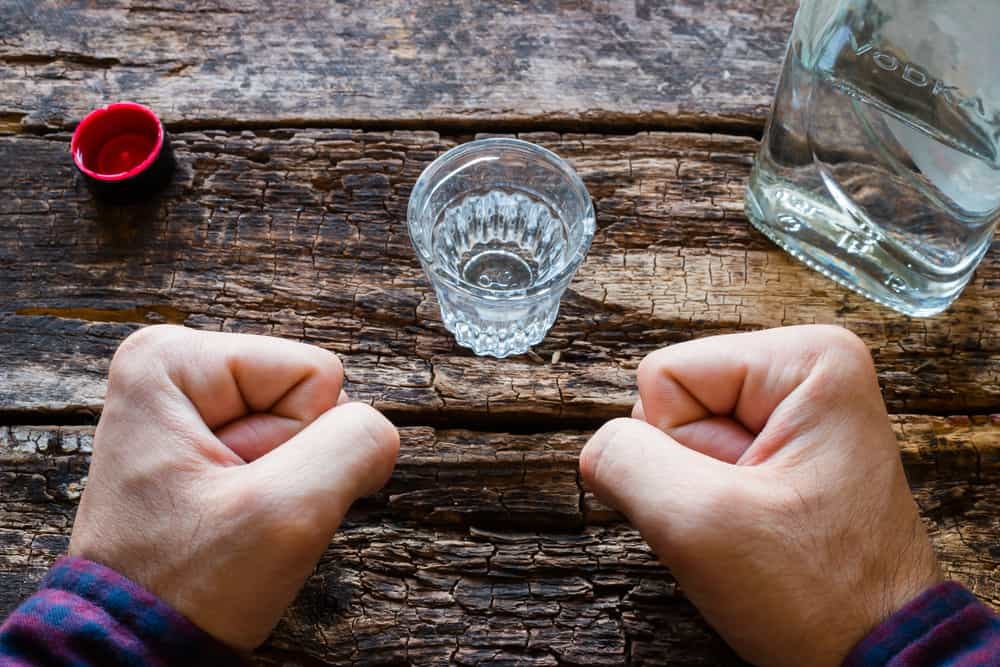Binge drinking is a risky behavior that can easily lead to alcoholism. Although typically viewed in a social light, a single instance of binge drinking can have both short-term and long-term effects on your health. It doesn’t mean alcohol addiction is inevitable, but the likelihood of it is increased. To intervene and prevent alcohol dependency or addiction, it’s important to seek treatment for binge drinking from the start.
There are several strategies that support raising awareness and setting limits as a preventative measure. Self-monitoring, in addition to receiving support and assistance from those around you, may be a successful course of addiction treatment. First determine if moderation is feasible or if abstinence makes the most sense.
Depending on your drinking habits and history, moderation can be challenging, since it may be difficult to set boundaries for yourself. If binge drinking becomes increasingly frequent or you begin to have trouble controlling how much you drink, that’s when a medically managed treatment program can step in and assist. The approach won’t be the same for everyone; what matters is what works best for you.
Self-Monitoring and Goal-Setting Treatment For Binge Drinking
The National Institute on Alcohol Abuse and Alcoholism (NIAAA) describes a cognitive-behavioral treatment designed for problem drinkers of mild to moderate severity as an intervention tool. It requires self-monitoring and goal-setting as part of the process.
When implementing these strategies, it requires an increased level of self-awareness and an ability to identify triggers or temptations of alcohol use and its associated risks. The recommendation is to set goals for self-monitoring. These may include:
- Setting limits on the amount of alcohol consumed
- Decreasing drinking frequency
- Recognizing any relevant drinking patterns
Setting goals and implementing a few ways to control how much and how often you drink can curb the effects of binge drinking and alcohol addiction. For example, this methodology may involve a person deciding on a specific number of drinks per week or in a social setting. Alternatively, it could involve someone deciding to skip situations where alcohol is present.
If self-monitoring is difficult, it may bring to light an alcohol dependence that’s already present. As you increase the frequency and amount of alcohol you consume, the body builds a tolerance and requires greater amounts to feel the same pleasurable effects as before. This eventually causes the body to become dependent on alcohol, not only to feel good, but to function.
When addiction sets in, there’s no longer self-control over how much you drink or how often. The strategies of self-monitoring and goal setting at the binge drinking treatment stage are no longer applicable.
Community Assistance With Excessive Alcohol Use Prevention
In addition to maintaining accountability on a personal level, the Centers for Disease Control stands behind proposed actions as outlined by the Community Preventive Services Task Force. These recommendations are evidence-based strategies that have been distributed to communities to reduce excessive alcohol use.
Many of the recommendations start at a city level, such as limiting hours of sale of when alcohol can be legally served or sold and increasing alcohol taxes. However, there are other smaller action items that individuals can implement through their communities, especially among their own family and friends. These include:
- Limiting alcohol consumption to no more than one drink per day for women and no more than two drinks per day for men, if you do choose to drink
- Skip serving alcohol to anyone who shouldn’t be drinking, including teenagers, those who have already drank too much, or anyone who is already struggling with alcohol
- Request counseling if you or someone you care about drinks too much
Sometimes the best treatment for binge drinking is prevention and abstinence versus trying to moderate or self-monitor. Binge drinking often occurs in social situations, which means it’s easier to feel tempted by repeat occurrences when others are around.
Excessive alcohol use on any level poses a threat to your physical and mental state and can easily be the stepping stone to addiction. When this happens, it’s highly recommended to seek the assistance of an alcohol addiction program versus continuing to struggle with it on your own.
Treatment Through an Alcohol Addiction Recovery Center
There’s a fine line between alcohol abuse and alcohol addiction. Binge drinking is an example of alcohol abuse, but not necessarily a sole signifier of alcoholism. Alcoholism occurs when you lose control over your ability to monitor how much you drink.
The first step to recovering from alcohol addiction is detoxification. Seeking addiction treatment through a medically managed alcohol detox program gives you the resources and support necessary for a long-term recovery. With a team of psychiatrists and therapists monitoring your physical and mental health, they can provide medication, such as naltrexone, to reduce cravings and ensure you are kept safe.
In addition to detox, there are subsequent parts of a recovery program that give you the tools and strategies to guide you in the future. It’s important to continue with these other phases of care in order to facilitate long-lasting recovery. The detox process normally lasts for one week, depending on your level and history of addiction.
Following detox, residential rehab calls for a 90-day stay at a treatment facility. The program provides a space to give your mind and body time to rest and focus on your long-term health and sobriety. It includes individual counseling, group therapy, and scheduled activities to rebuild a healthy routine sans alcohol.
Intensive outpatient care is the next phase of treatment. It is an extension of the services and care received through rehab. This option allows for a flexible schedule once you’ve secured a safe, sober living environment. It is also a beneficial resource for anyone who has gone through the detox program before and wishes to seek a treatment specialist to prevent relapse.
There are options available to you for any level of treatment you need. Whether you are someone who is struggling with heavy drinking or another type of harmful drinking behavior or are a person who cares about someone who is, consider seeking help.
Signs of Binge Drinking and Alcohol Addiction
The NIAAA reports an estimated 17 million adults have an alcohol use disorder. The condition ranges from mild to severe, but part of being diagnosed is considering the following questions:
- Do you often drink more or longer than intended?
- Do you experience cravings to drink?
- Has drinking or the effects of drinking interfered with your well-being or those around you in any way?
- Have you continued to drink even if it’s caused problems at work or among your family and friends?
- Have you tried to stop drinking, but couldn’t?
Answering “yes” to any of these questions in combination with experiencing withdrawal symptoms often results in an alcohol addiction diagnosis. This diagnosis doesn’t necessarily have to come from a doctor; self-diagnosis is common.
Once the body has become addicted and is used to functioning with alcohol in the system, it will react negatively when it’s not present. These withdrawal symptoms may include nausea, sweating, shakiness, anxiety, tremors, and/or seizures. Alcohol withdrawal may also cause insomnia and increase your heart rate.
These symptoms occur within hours of your last drink. Though they range in severity and frequency, they are painful and disruptive. Turning to the help of an alcohol addiction treatment facility is the safest route. You’ll be in a secure environment with the medical attention and emotional support you need to manage each phase of care successfully.
What Is The Best Treatment For Binge Drinking?
The best treatment for binge drinking is always with the assistance of others. The way that alcohol changes the way you think can prevent you from making good decisions about your health. Additionally, when you’ve reached the addiction stage, participating in a detox program is safer and more impactful than trying to detox at home.
With alcohol addiction, severe symptoms like hallucinations or delirium tremens should be closely monitored for the sake of your health. Also, when you’re in a vulnerable state, cravings and temptations may be too overwhelming for you to handle on your own. Although binge drinking doesn’t always lead to this level of necessary care, it does make you susceptible to ongoing dangerous drinking habits.
Each type of binge drinking treatment depends on where your individual situation and what will benefit you the most. Self-monitoring and goal-setting may be appropriate if you’ve noticed how drinking alcohol has negatively affected your life and are capable of taking steps in order to control it.
The idea of community assistance and being able to rely on those around you is another way to manage your problem drinking frequency. However, if binge drinking is happening frequently or you have become dependent on alcohol, it can be difficult to heed the advice of those around you. Cravings and temptations may be too strong to abstain from excessive drinking or accept moderation.
Whether you need to make a few lifestyle adjustments or require the assistance of a medically managed addiction program, you can achieve the help you need to improve your well-being and achieve sustainable sober living.
Sources:
- Walitzer, K S, and G J Connors. “Treating problem drinking.” Alcohol research & health : the journal of the National Institute on Alcohol Abuse and Alcoholism vol. 23,2 (1999): 138-43. https://pubs.niaaa.nih.gov/publications/arh23-2/138-143.pdf
- “Treatment for Alcohol Problems: Finding and Getting Help.” Nih.gov. N.p., 25 Apr. 2019., https://www.niaaa.nih.gov/publications/brochures-and-fact-sheets/treatment-alcohol-problems-finding-and-getting-help#2
Author
-

President, CEO & Founder at Northbound Treatment Network
Paul Alexander is the CEO, President & Founder of Northbound Treatment Network in Newport Beach, California. He believes wholeheartedly in transformational leadership, organizational health and effective, fully integrated substance use disorder and mental health treatment. With over 27 years of experience in behavioral healthcare, Paul has extensive knowledge of “in vivo” treatment modalities, clinical development, operations, strategy, marketing and financial planning. He has been widely recognized for his development of collegiate-based residential treatment programs for students in recovery and authored a research study at The University of California confirming this modality’s effectiveness.
Paul’s comprehensive professional experience, willingness to innovate, and emphasis on organizational health are vital factors in Northbound’s continued success. Paul received his Certified Addiction Treatment Specialist training at Saddleback College in Mission Viejo, CA, and was awarded Outstanding Alumni Service Award in 2002. Paul holds a Bachelor of Arts degree in Criminology, Law and Society, Summa Cum Laude, from University of California, Irvine, and a Juris Doctorate degree from Loyola Law School of Los Angeles. Paul currently serves on The National Association of Addiction Treatment Providers (NAATP) board. In addition, he serves on The Family Recovery Foundation board and The CarePossible board in Orange County; both organizations are committed to raising funds for family recovery and treatment for former military personnel. Paul is in recovery himself and lives in Orange County with his wife Silvana and his two young sons, Noah and Dean.










